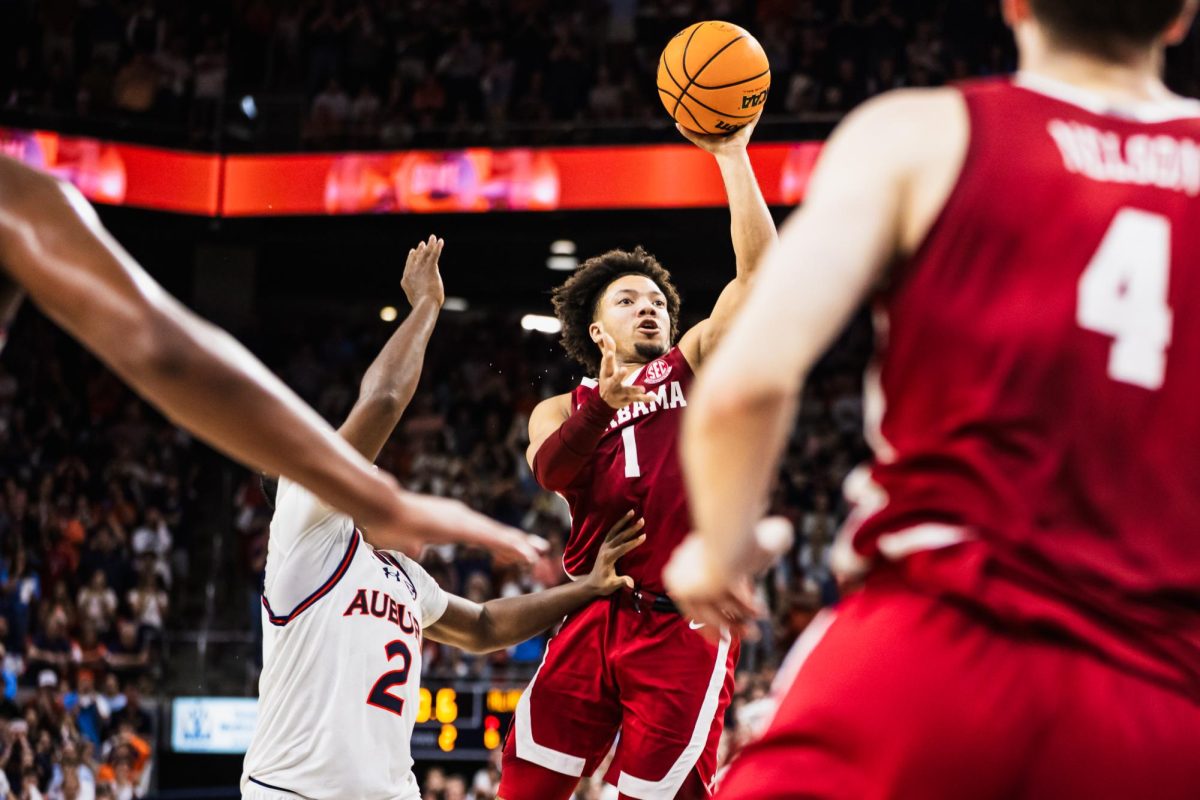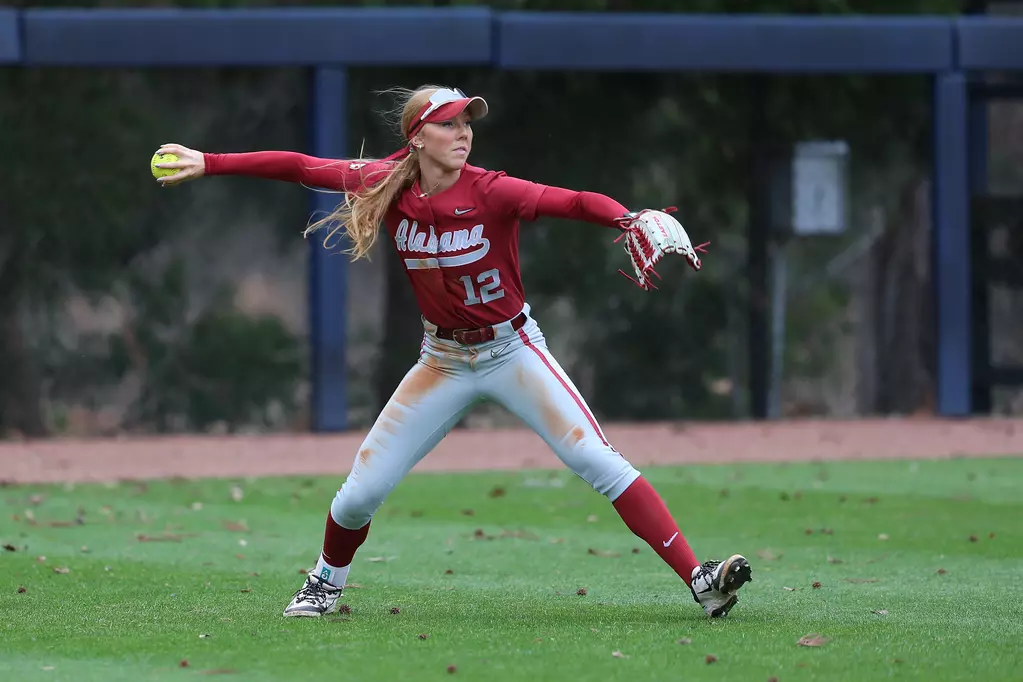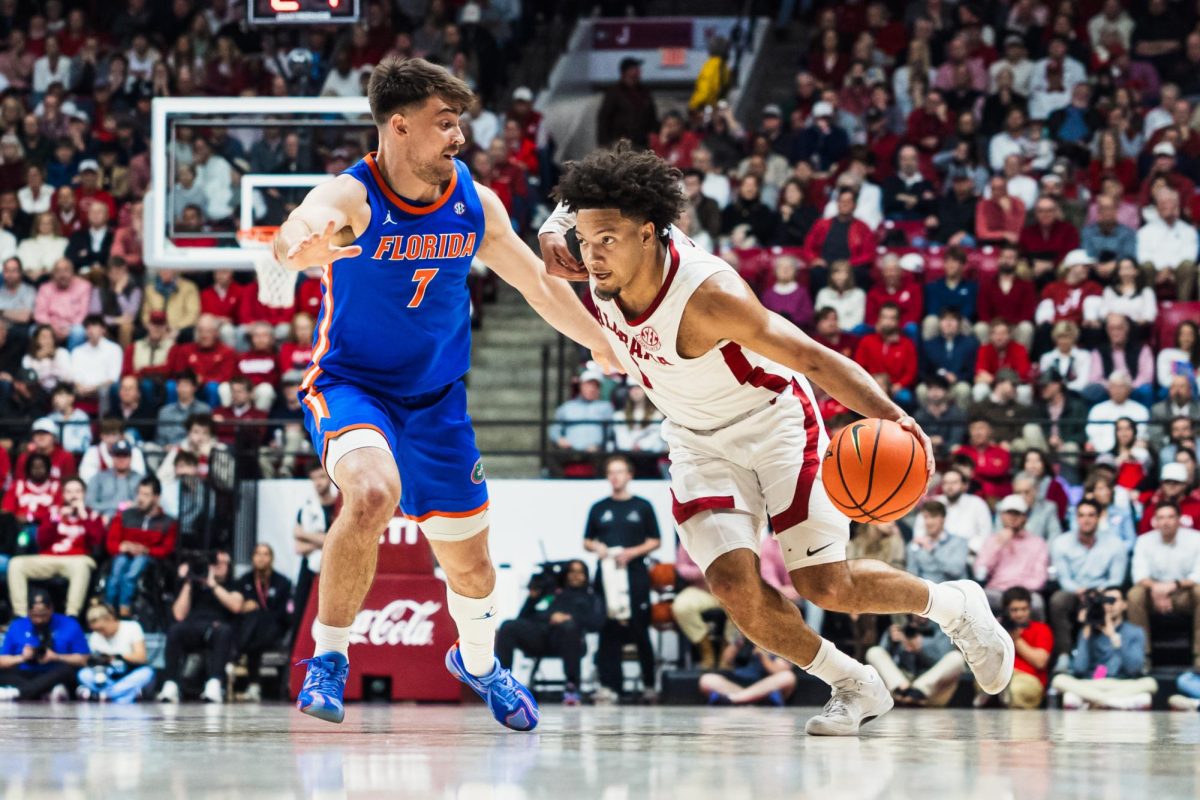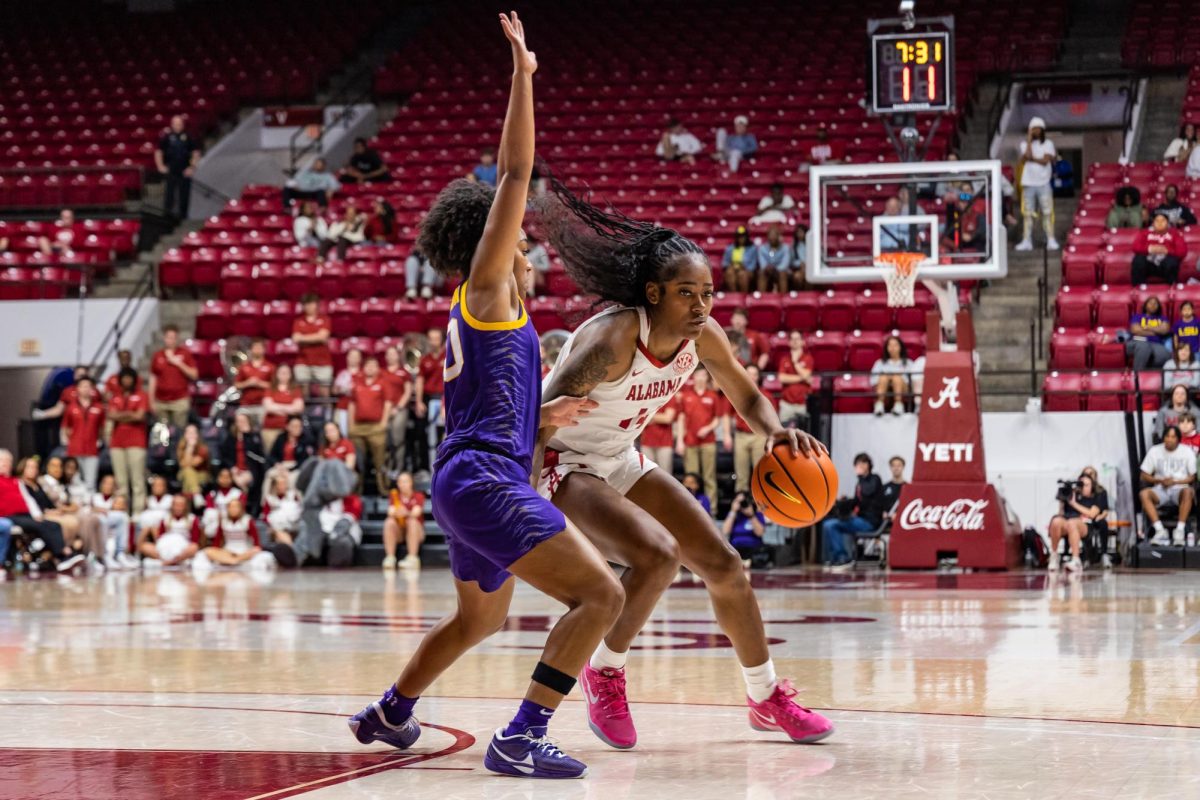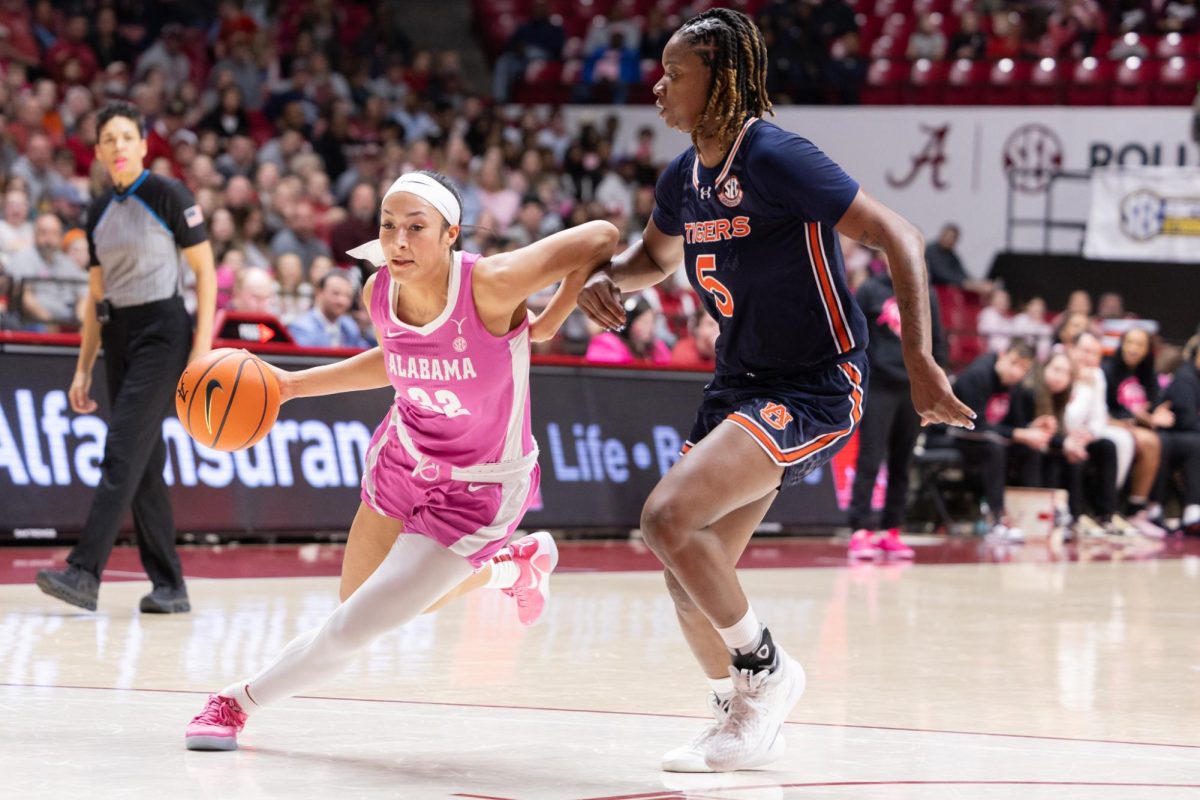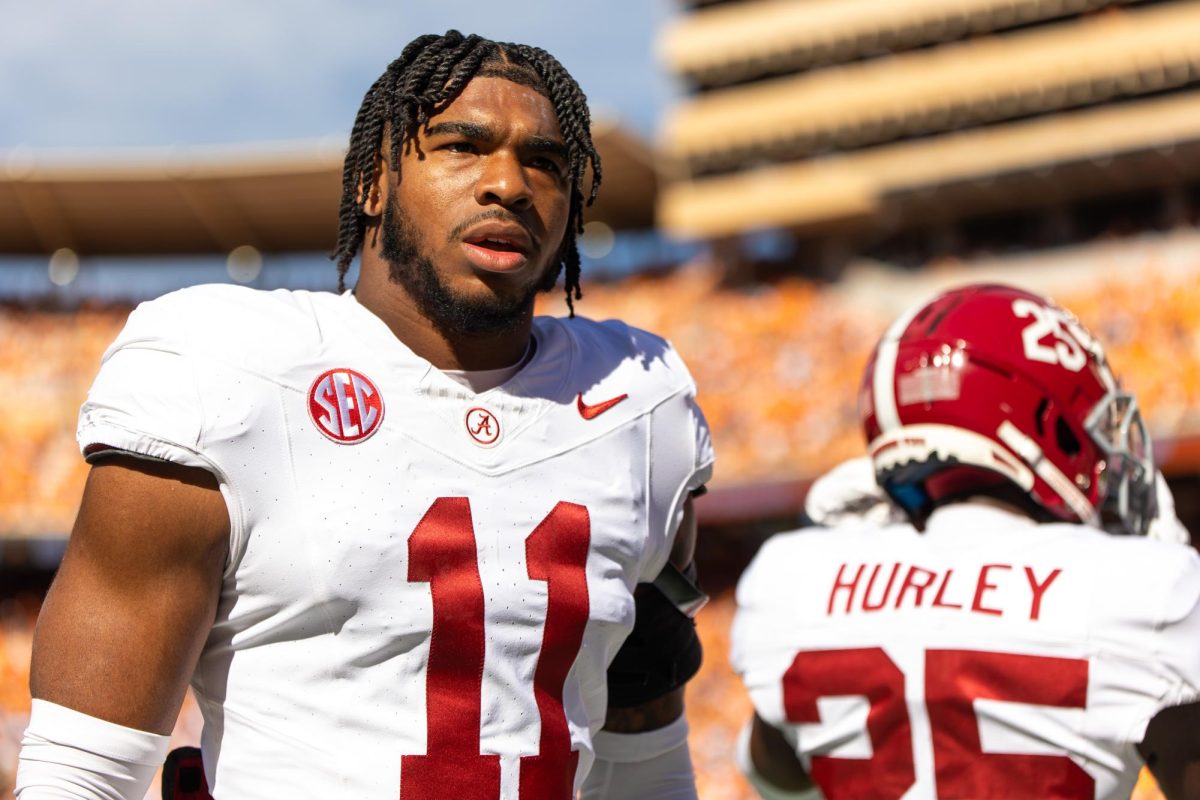 When Alabama athletes walk onto the practice field or step onto the hardwood in Coleman Coliseum, their equipment is already set up. They see this, but they hardly notice it. The athletes work hard during practice, and when it’s over, they leave the equipment as they found it.
When Alabama athletes walk onto the practice field or step onto the hardwood in Coleman Coliseum, their equipment is already set up. They see this, but they hardly notice it. The athletes work hard during practice, and when it’s over, they leave the equipment as they found it.
The University’s athletic managers are the ones behind the setups. Managers are specifically assigned to each sport, and their main job is to help with equipment and make the coaches’ and players’ environments flow more smoothly.
They also choose their own sport to work for. Most of the time, it comes down to which sport is their favorite. For sophomore Michael Neese, the obvious choice was football.
“I just like football,” he said. “I played it in high school and know a few of the guys from my hometown around the football team.”
But it was a different story for someone with an Alabama high school state championship in another sport. Sophomore Brooks Merrill, who won state his senior year at Hillcrest High and said he has played basketball as long as he’s known how to walk, wanted to keep close to the sport after college.
“Things didn’t unfold the way I wanted them to [after senior year],” he said. “So I ended up talking to Coach [Mark] Gottfried my freshman my year and interviewing.”
In order to become a manager, each person must apply with a letter, followed up by an interview.
“They get like hundreds of letters and there’s only like twenty of us,” Neese said.
For the men’s basketball team, there are even fewer people helping. Merrill’s main job during games is keeping up with the statistics.
“We have two people who take up warm ups and pass out towels,” he said. “Three of us keep stats. There are certain statistics we keep during the game. There’s another one who videos and we’ll go back and break it down.”
During practices, their responsibilities are different. They do everything from wiping up sweat to setting up equipment to passing out water.
“You can’t really say everything we do,” Merrill said. “A lot of it is intangible stuff. It just happens and you just have to react.”
The intangible things they help with are mostly for the coaches. Sometimes the tasks involve recruitment, like taking basketball head coach Anthony Grant to the airport so he can go visit recruits.
It’s not always about recruitment, however, so the managers have to be ready for whatever they’re needed for.
“You always have to be on point to remember that no matter what the situation is, you could be called in the office just to help him do something,” Merrill said. “It just varies depending on the circumstances.”
In football, the managers still help with equipment. During practice, they help set up drills and spot balls during the drills. They also help hand out jerseys, pants, pads and other gear the players need.
“Every manager is in charge of something specific,” Neese said. “Me and Matt Sweatman are the glove guys.”
The managers usually have long hours during their sport’s season. Because football games usually practice about four hours a day, the football managers may have 40-hour workweeks in addition to the classes they’re taking. For game days, the managers have to be at the stadium four hours prior to the game’s start and stay about two hours after.
“It’s time-consuming, especially during football season,” Neese said. “All of our classes have to be done before one because we have to be at work at one and then they’ll practice at three. We’re there from one to seven everyday, and on the weekends every day.”
For basketball, the schedule is also busy. Merrill said he also schedules his classes for the morning, so he can dedicate his afternoons and evenings to the basketball program.
“It’s pretty hectic, but it’s what you sign up for,” he said. “You know what you’re getting into before you do it. My whole day is filled. It’s like class in the morning and work in the afternoon.”
These students aren’t doing these jobs for class credit, and though they’re not officially on a scholarship, there are benefits similar to scholarships.
“We get meals paid for sometimes, like a meal plan,” said sophomore Collin Ferrell, who manages football. “As we go on higher throughout our career, we get more and more each year. Like my first year I got meals paid for, then next year I’ll get meals and books.”
Neese, Ferrell and Merrill are all business majors and wouldn’t be able to use the managing skills too much in the business world after college. However, Merrill said he might use what he’s learned as a manager to coach someday.
“I’m leaning toward coaching or maybe up in the high ranks of athletic director one day or manager of a professional team or something like that,” he said.
Even if these students don’t take the skills acquired out into the work world, the years of working with the teams will have left them very fond memories. Ferrell said it was difficult to choose just one good memory when the football team had such an outstanding season.
“This year, we went to Pasadena, that was pretty cool,” he said. “It’s been pretty interesting. It’s been fun. I can’t really just say certain moments have been fun because we haven’t really lost, except two games.”
Also, the relationships the managers have developed will stay with them long after they leave the University.
“I’ve met people from all over,” Merrill said. “It’s crazy how many connections you can get. And just the relationships you can develop with the players. Some of the players are my best friends. And at the end, when it all comes together, you get to win. So it’s a good feeling.”
For the men’s basketball team, Merrill said they’re still rebuilding, but he’s happy to be a part of that process.
“A lot of what we do goes unnoticed, but we want it that way,” he said. “We don’t really care. It’s all about the guys and the program. We’re trying to build up like the football team has. It took them a couple of years, and we’re still getting there. [The managers] just do what we love, so that’s why we do it.”



